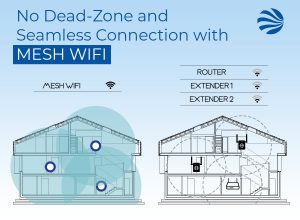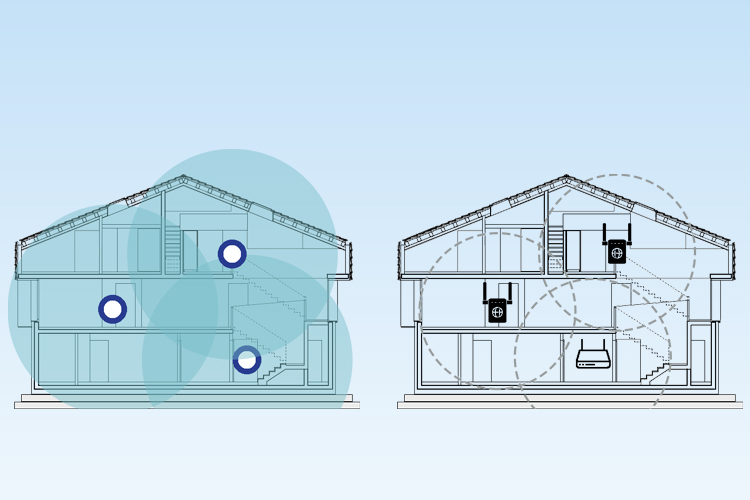Looking to increase Wifi-coverage in your house by investing either in Mesh Wifi or Traditional Router setup? Here are the basics information you need to know to decide between those two
You feel that your internet is slow, you tried to troubleshoot it but your Youtube video is still buffering. That is potentially due to Wi-fi coverage in your house. You’re considering between Mesh Wifi and traditional Router, which one should you choose?
Mesh Wifi?
Also called Whole Home Wi-fi, consists of several nodes placed around your house to tackle the problem of local connectivity. The strongest advantage of the Mesh Wifi system is that they are all part of a single network and share the same Wifi Name (SSID) and password, unlike traditional Wifi routers.
In the Mesh Wifi system, one node is designated the primary router (we call it Main Node), and is directly wired into the modem. Other nodes (satellite nodes) can be placed around the house with the power cord connected. If you have a 3-story house, each node should be placed at each level and around 5-6 meters from the Main Node. Collectively, these nodes behave like a single seamless network.

That means when you walk from the living room to the kitchen, your phone (and all other devices) will automatically connect to the closest node. Your phone cannot behave like this if you have multiple traditional routers or extenders at home. With Routers or Extenders, your phone will always connect to the same router when you walk from one place to another, without automatically connect to the closest router. That means if you want to connect to the closest one, you have to go to Settings on your device to connect again.
When should you use Mesh Wifi?
If your house is more than 2000sqft or has 2+ floors, Mesh Wifi will show its full ability. For houses with less than 1000sqft and has 1 story, most likely a traditional router can get the job done.
Which Mesh Wifi brands are there in the market?
While there are plenty of brands producing Mesh Wifi, 2 names that stand out from the rest are Deco M5 from TP-Link and Nest Wifi from Google. Both systems have 3 nodes with the option of setting an additional one. Deco M5 has a really decent Wifi Range for its price ($230), while the Nest Wifi has larger coverage at $459. At HD Telecom, we provide Deco M5 with configuration service for customers, so they just need to plug in and use it.
With elegant design, Mesh Wifi is becoming the new standard device, replacing traditional Routers and Extenders.

